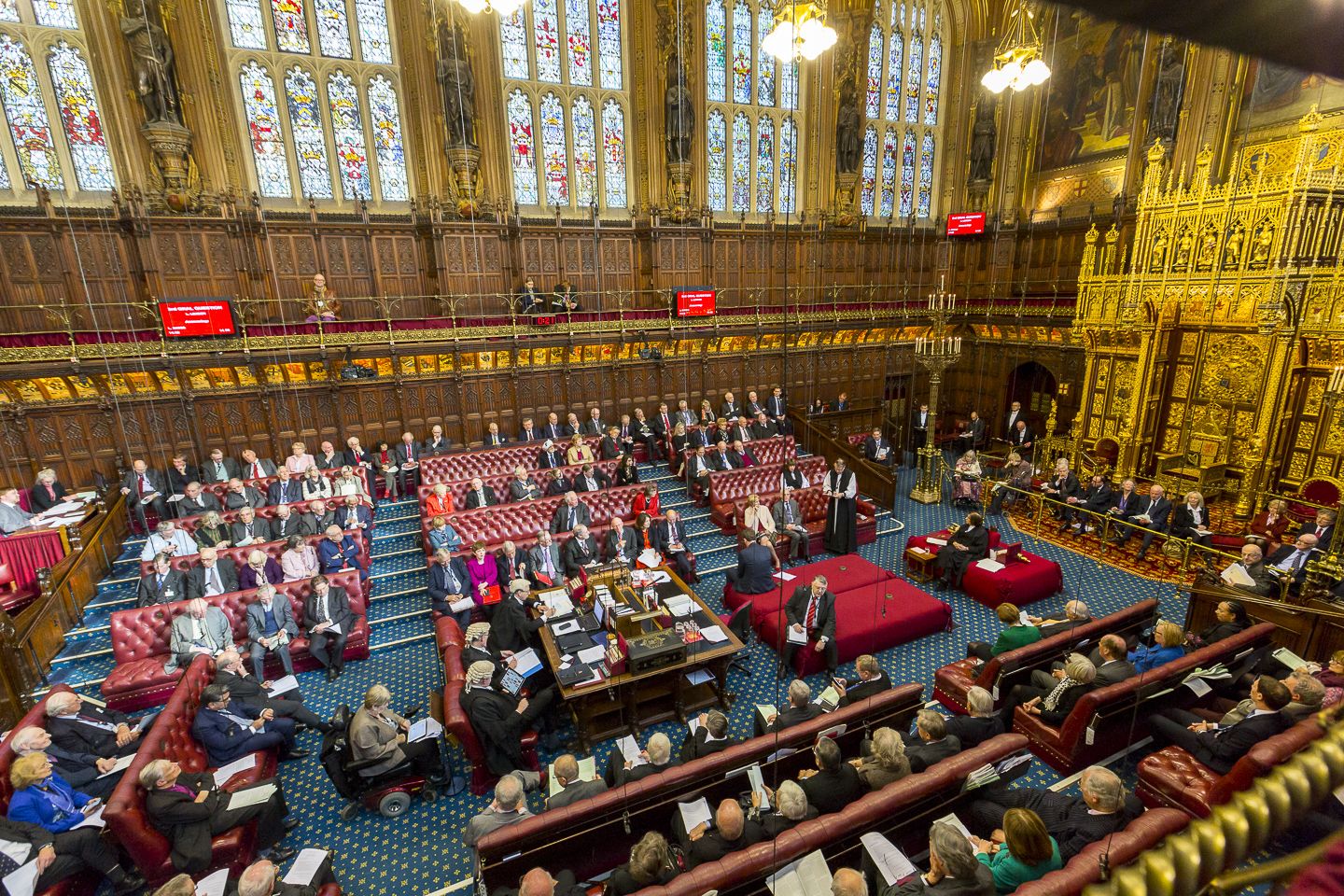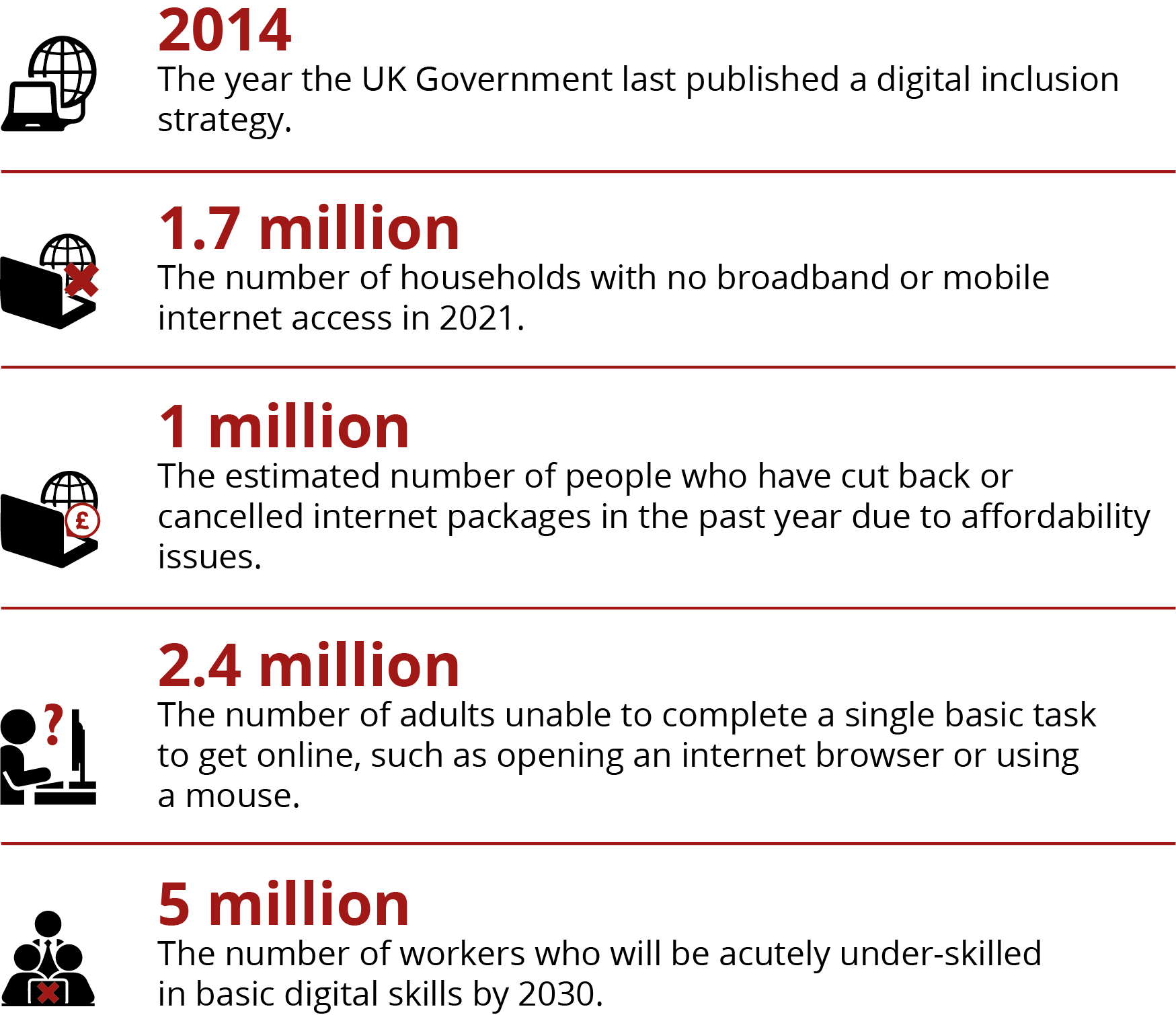The digital divide is deepening
How do we tackle digital exclusion in the UK?

Digital exclusion: what’s the problem?
Digital exclusion is about groups of people not being able to use the internet in the ways needed to participate in today’s society. Everything from housing and healthcare resources to banking and benefit systems are moving online at unprecedented speed. Many have no offline alternatives. People who can’t get online are falling ever further behind.
Key figures on digital exclusion in the UK
Who is affected and why?
The root causes of exclusion are complex and difficult to solve: age, socio-economic background, disability and region are all key predictors. But people from all walks of life and age groups can be affected. Common barriers to getting online include financial hardship, a lack of basic skills or confidence, and no suitable internet connection being available.
By failing to take decisive action the Government is allowing millions of citizens to fall behind.

Five priorities for a new strategy
Digital exclusion is a moving target. It’s holding back Government ambitions to boost economic growth, levelling up, public health, and net zero. Cost of living challenges make the problem worse. We’re calling for a new strategy to solve this.
1. Cost of living support
The Government should take decisive action to stop more people becoming excluded as cost of living challenges bite. Priorities include:
- Cutting VAT on social tariffs to make internet cheaper for the poorest households
- Asking internet providers to advertise social tariffs better
- Making public sector organisations donate old devices to charities
- Working with businesses to scale up internet voucher schemes
2. Invest in basic digital skills
Basic digital skills are now as important as maths and literacy. The Government should:
- Make basic digital skills feature more prominently in schools, apprenticeships and adult learning courses
- Ensure community organisations can teach basic skills in local settings, without needing to focus on qualifications
3. Boost digital inclusion hubs
We need more places for people to get basic digital support. The Government should:
- Prioritise libraries and other local amenities to provide a place to help people get online
4. Future-proof public services
The use of predictive machine-learning tools in public services is growing. The Government should:
- Ensure digitally excluded groups (who are poorly represented in the algorithms’ training datasets) are not further marginalised in future
5. Prioritise telecoms competition
Many smaller local internet providers (altnets) support poorly served local communities, for example by connecting community hubs and offering doorstep customer support. But the Government-backed rollout of major telecoms upgrade programmes is putting altnets under increasing financial pressure:
- The Government should prioritise market competition and review the impacts on digital exclusion that arise from broadband rollout plans
What happens next?

We have made our recommendations to the Government and it has two months to respond to our report.
Read the full report on our website.
Find out more about our inquiry and our committee.
Follow us on Twitter @LordsCommsCom






